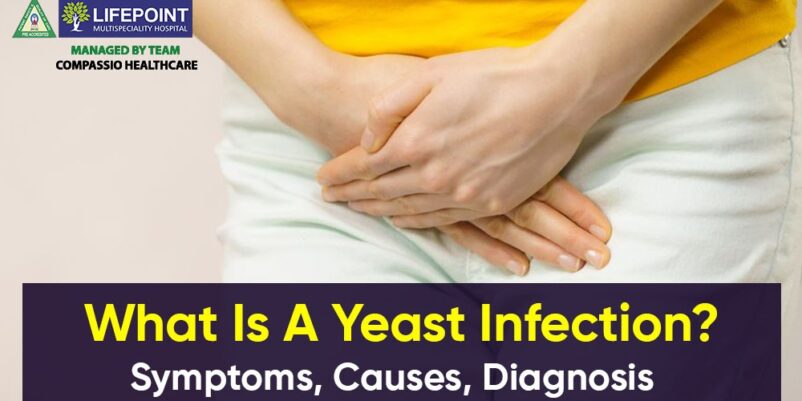The human body is teeming with microbes. Bacteria and yeast cells are present in a healthy vagina. When the proportion of yeast and bacteria changes, the yeast cells may grow. This results in severe itchiness, oedema, and irritation.
Vaginal infection or vaginal candidiasis affects nearly three out of every four women at some point in their lives. A vaginal yeast infection is a fungal infection of the vagina and its surrounding tissues that cause severe itching, redness, and discharge. A yeast infection is not a sexually transmitted infection, and it is treatable.
How do I know if I have a Yeast Infection?
Yeast infections can cause the following symptoms:
• During sexual intercourse, there is a burning feeling.
• Peeing with a burning sensation
• Soreness and pain in the cervix
• The vulva is swollen and inflamed.
• Vaginal irritation and itching
• Watery vaginal discharge
In the following circumstances, you may acquire a more severe yeast infection:
• In a given year, you may have four or more yeast infections.
• Diabetes that is uncontrolled Pregnancy
• Severe erythema, oedema, and itch
• HIV infection has weakened the immune system.
What are the signs and symptoms of Vaginal Yeast Infection?
Your doctor would confirm the infection by:
• performing a pelvic examination and taking a complete medical history.
• Your doctor would also look for symptoms of infection on the outside of your genitals. The doctor would also perform a thorough examination of the vagina and cervix to confirm the diagnosis.
Sampling. Your doctor may also take samples of vaginal fluid and send them to be tested to identify the fungus that is causing the yeast infection; this can help the doctor better select the course of therapy and keep an eye out for recurrence.
How can a yeast infection be prevented?
A variety of circumstances cause yeast infection. These risk factors are as follows:
• Estrogen levels have risen. Yeast infections are more common in women with high oestrogen levels. Pregnant women who use a high dose of birth control tablets fall into this category.
• Immune system dysfunction. Women with severely compromised immunity, such as those infected with the Human Immunodeficiency Virus (HIV) or on corticosteroid medication, are more likely to get a yeast infection.
• Use of antibiotics. Antibiotics, which destroy a wide variety of bacteria, have also been linked to yeast infection. Because of the high dose, many of the ‘good’ balance bacteria counts are reduced, allowing the fungi to thrive.
• Diabetes. Women with high blood sugar and poorly controlled diabetes are more likely to get yeast infections than women with well-controlled diabetes.
What are the treatment options for vaginal yeast infections?
Depending on the severity of the yeast infection, your doctor will treat you. If you have a mild to moderate infection, your doctor may advise you to try the following yeast infection treatments. Among the yeast infection medications are:
• A single-dose oral medicine. Fluconazole may be prescribed as a single dose by your doctor. Pregnant women should avoid taking this medicine.
• Short-term vaginal treatment. Your doctor will prescribe this course of therapy, which includes an antifungal prescription for about a week and usually clears the yeast infection. These antifungal drugs come in the form of ointments and lotions. Include medications like miconazole and terconazole as well.
If you do not notice any relief from your symptoms, you should see your doctor. If your symptoms are severe, your doctor may advise you to do the following:
• Medication in many doses. Two to three oral doses of antifungal medicine are required; this is not suggested for pregnant women.
• Vaginal therapy for a long time. Your doctor may also prescribe antifungal medications for two weeks straight, followed by once a week for six months.
• Azole-resistant treatment. You are typically used to treat complex, resistant fungus. Your doctor would place a boric acid capsule into your vagina. When taken orally, this medicine is lethal, and it is only used to treat Candida.
So yet, no alternative medicines or lifestyle changes help treat vaginal yeast infections.

